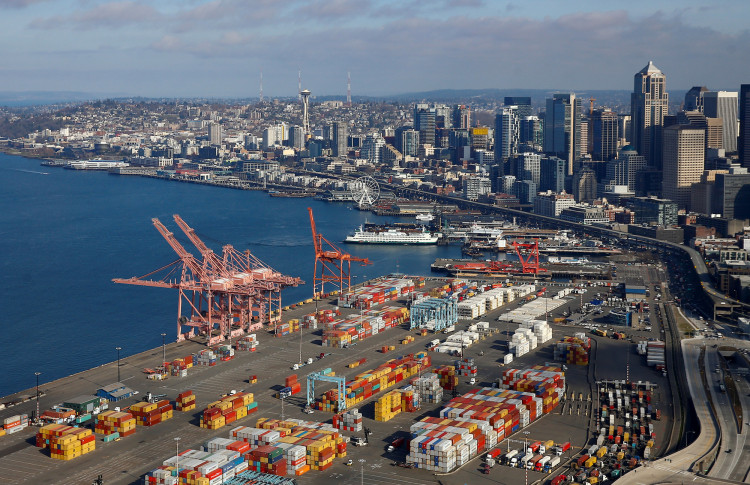The recent surge in attacks by Iran-backed Houthi militants on commercial shipping in the Red Sea is raising alarms over the potential for a renewed global supply chain crisis. This critical juncture for world trade, which has seen a significant increase in shipping costs and disruptions, could derail the fragile recovery from the economic turmoil caused by high inflation and chronic shortages.
The Suez Canal, a vital passage for about 15% of world shipping traffic, including 30% of global container trade, has become a high-risk zone. To avoid attacks and potential theft of cargo, many ships are now taking a longer route around the Cape of Good Hope. Robert Handfield, a professor at North Carolina State University, told FOX Business that this diversion is causing "significant cost and delays" for shipments reliant on the canal.
Data from the Suez Canal Authority indicates a substantial drop in ship traffic compared to the previous year, with container shipping giant Maersk suspending its use of the Red Sea and Suez Canal. The rerouting of vessels around Africa is estimated by UBS to reduce the effective capacity of an Asia-Europe trip by about 25%, leading to a 173% increase in shipping rates from Asia to Northern Europe.
The situation is exacerbated by drought-like conditions in the Panama Canal, which has restricted ship passage due to low water levels. These cumulative factors are stoking fears of a resurgence in inflation, as oil prices have already shown an uptick following military responses to the Houthi attacks.
Despite these challenges, Handfield believes the impact on American consumers remains minimal for now, though there could be some price increases in specific goods and commodities from the region.
The crisis in the Red Sea, compounded by the ongoing conflict in Ukraine, has led the World Bank to express concerns over higher interest rates, lower growth, persistent inflation, and greater geopolitical uncertainty. The attacks on commercial vessels have already disrupted key shipping routes, increasing the likelihood of inflationary bottlenecks. In the event of escalating conflicts, energy supplies could be substantially disrupted, leading to a spike in energy prices with significant global implications.
As world leaders and economists converge in Davos for the World Economic Forum, the looming threat of a recession in major economies and the potential for central banks to maintain high interest rates add to the uncertainty and challenges faced by households worldwide. The situation in the Red Sea, coupled with issues in the Panama Canal, places two of the world's five keys to trade in jeopardy, posing a real risk of escalating prices and further disrupting global supply chains.




